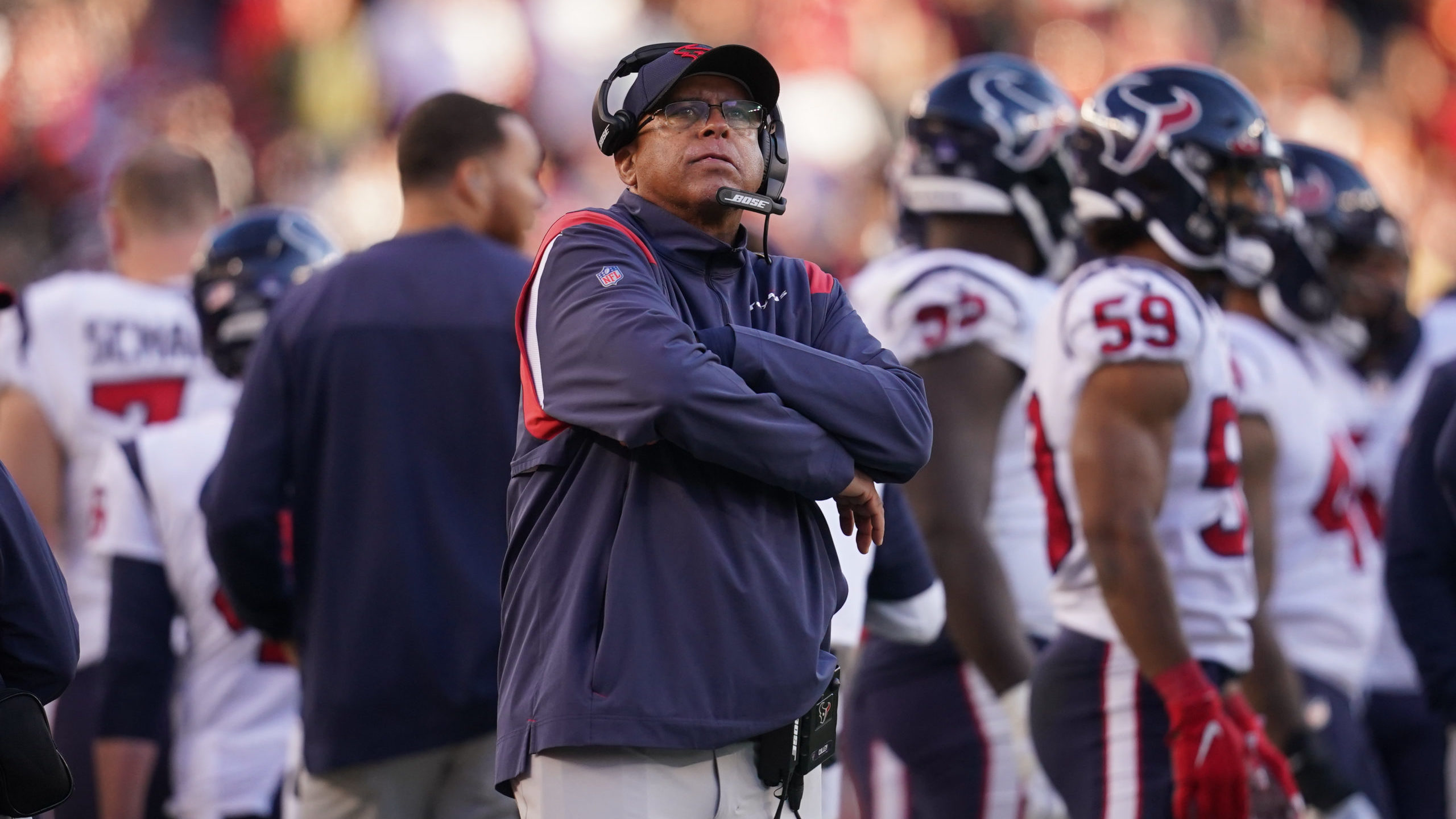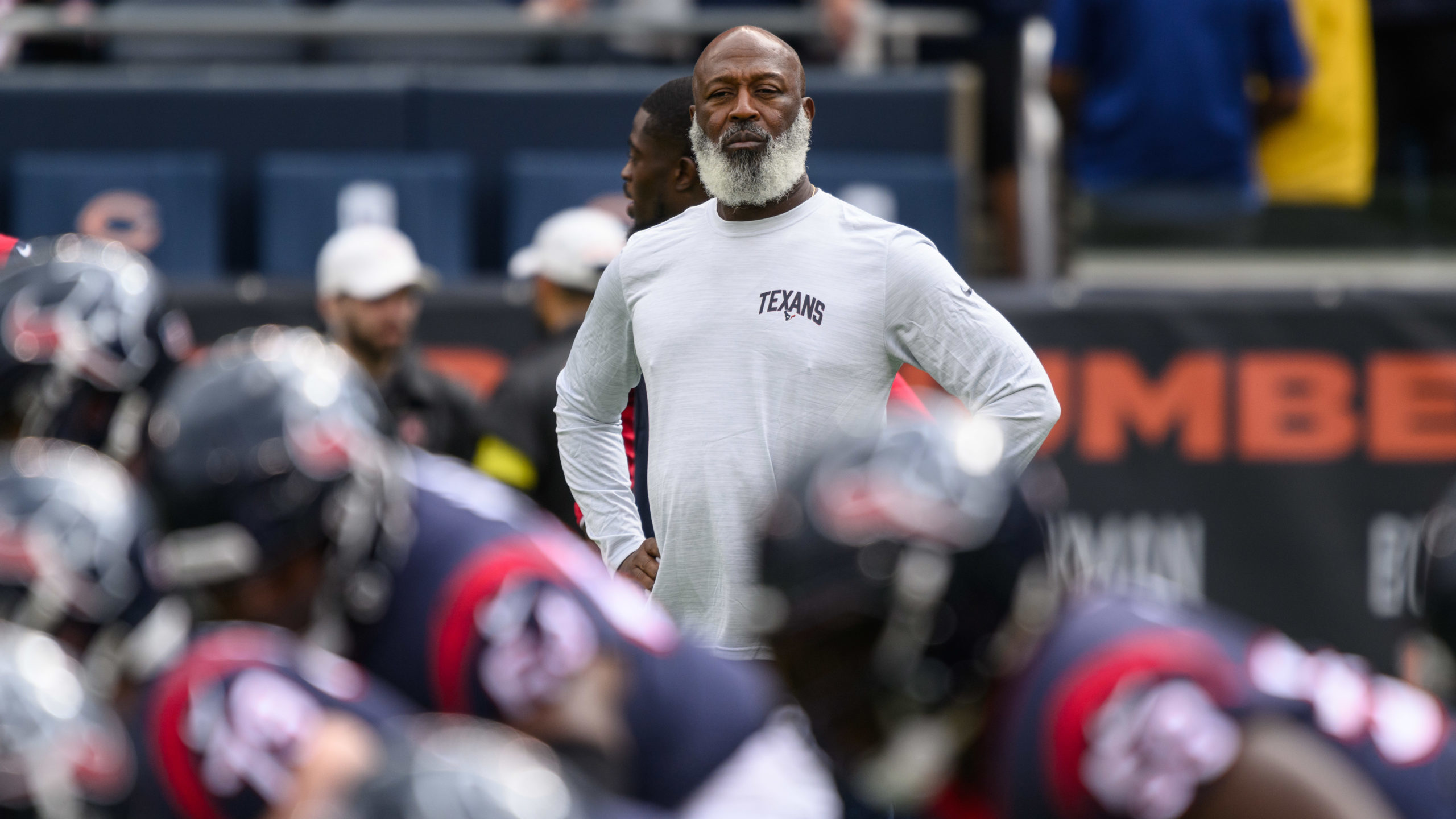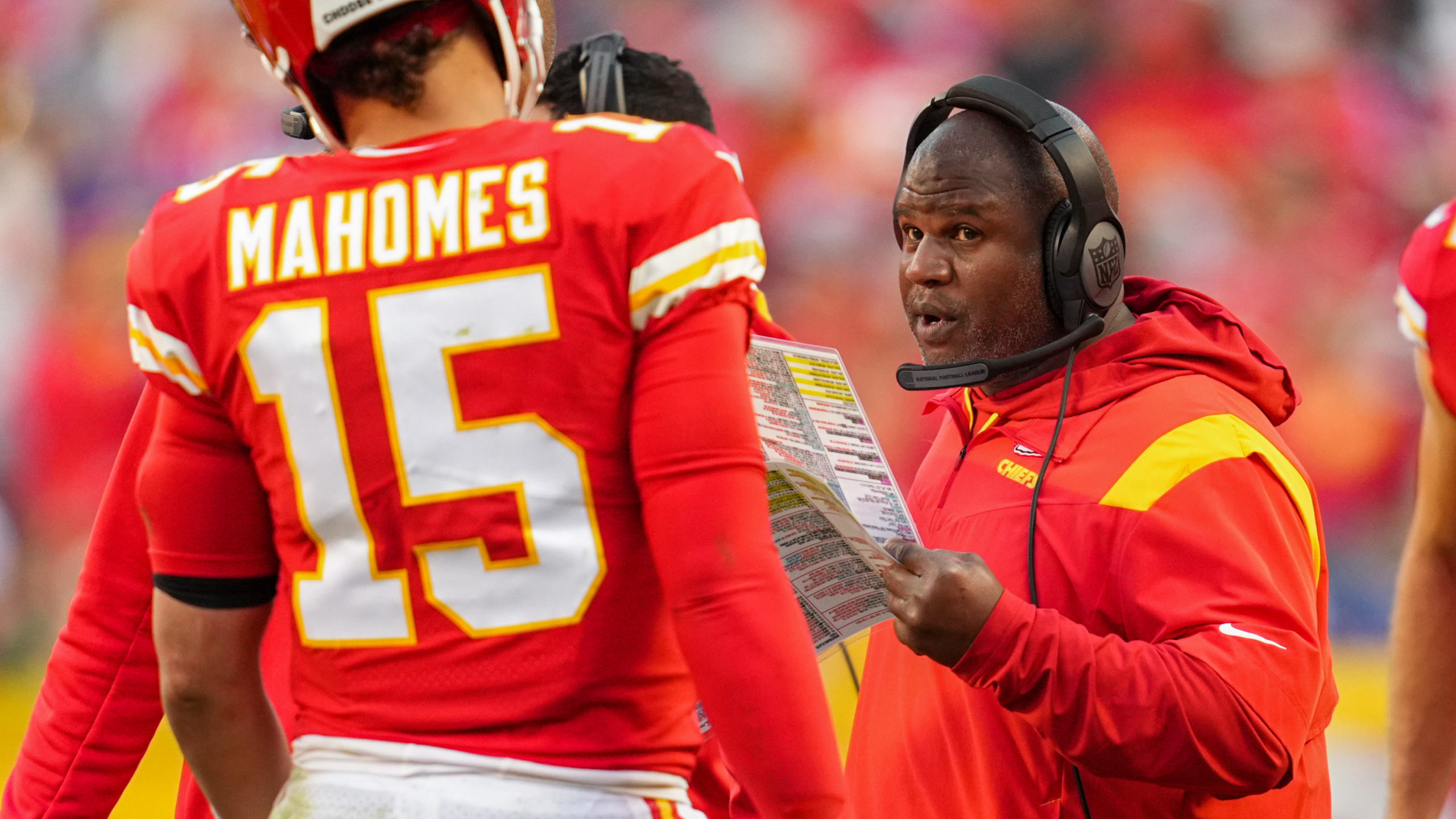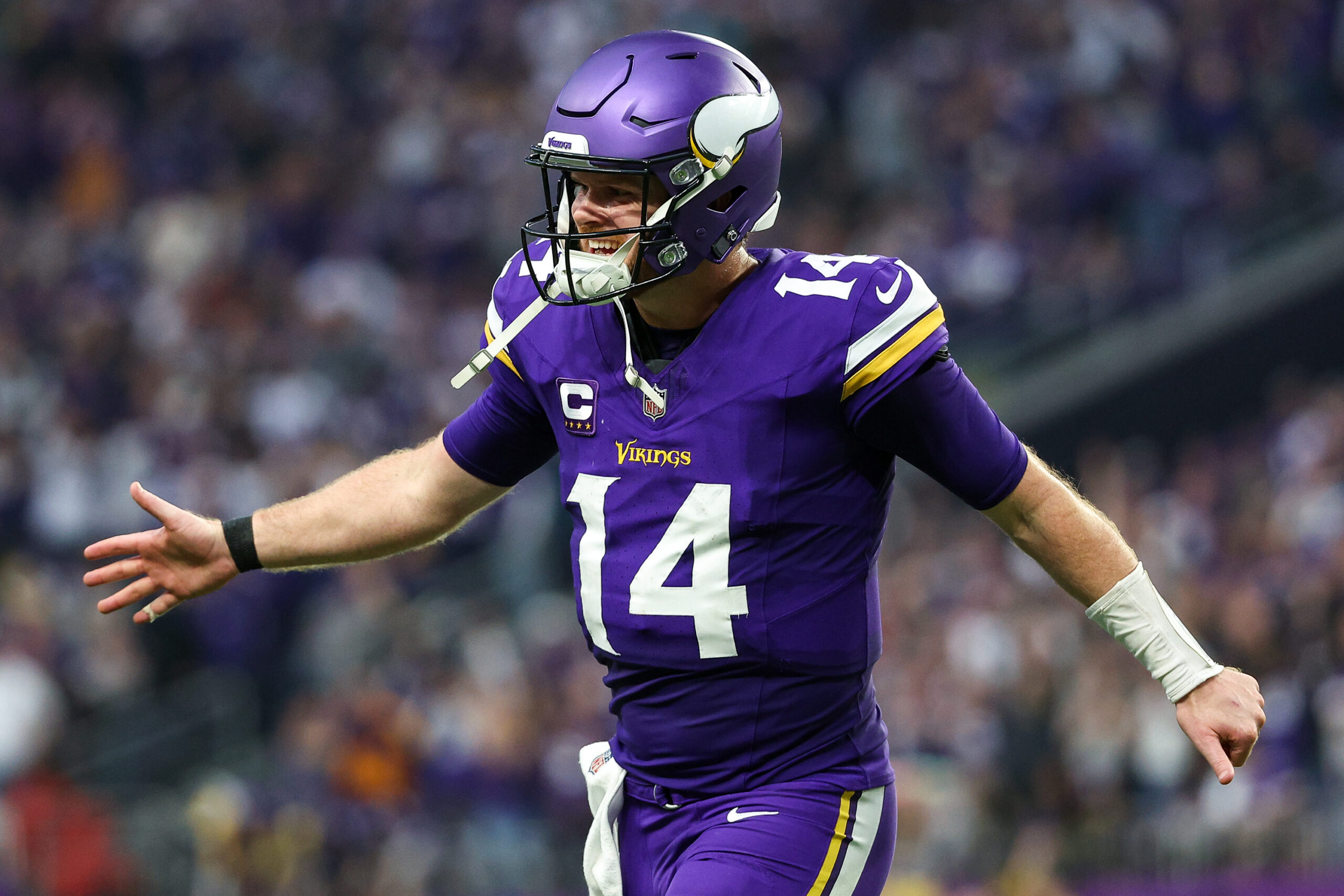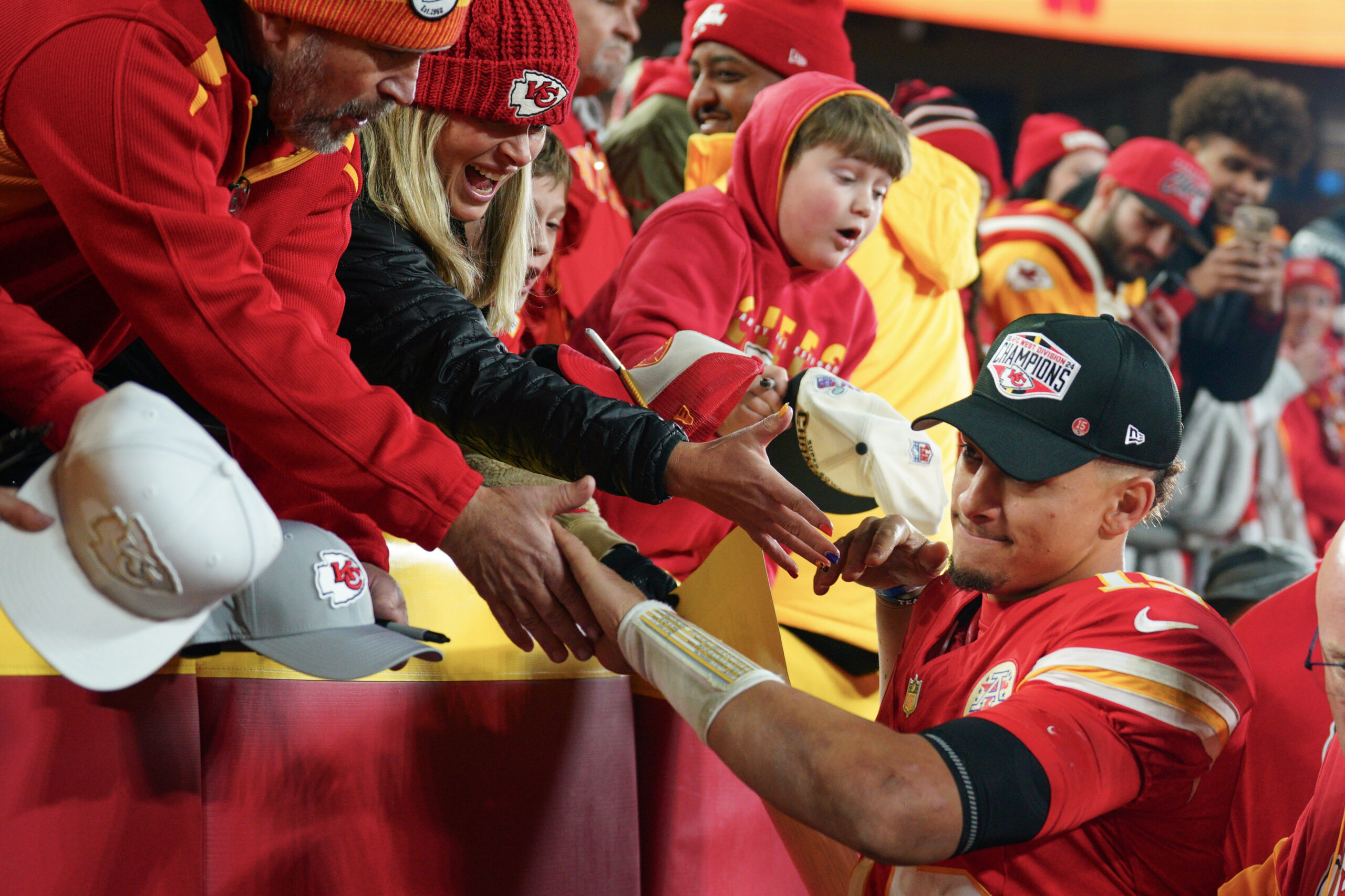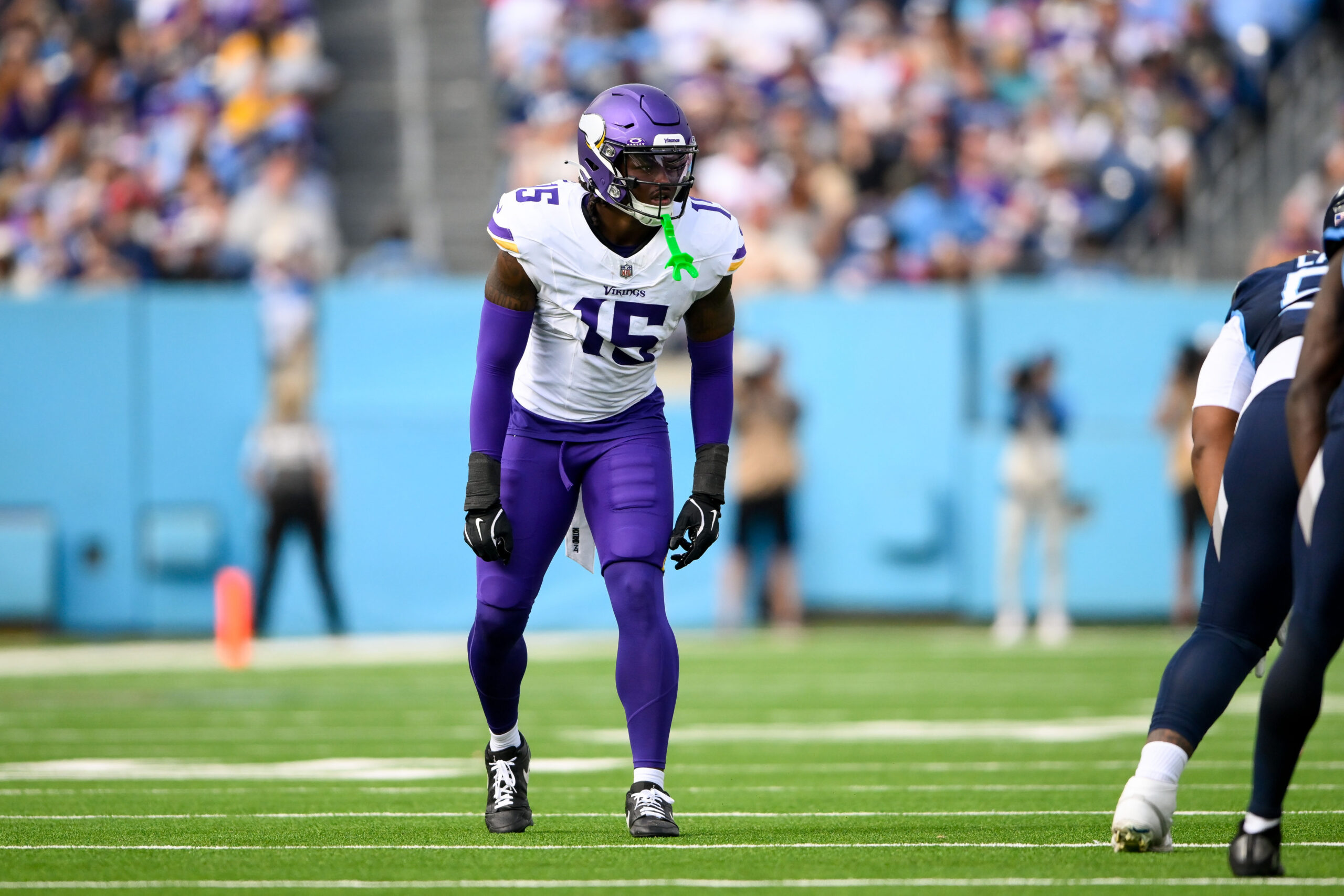NFL Analysis
11/7/22
13 min read
Troy Vincent Q&A: NFL's Minority Coach Hiring Remains Problematic
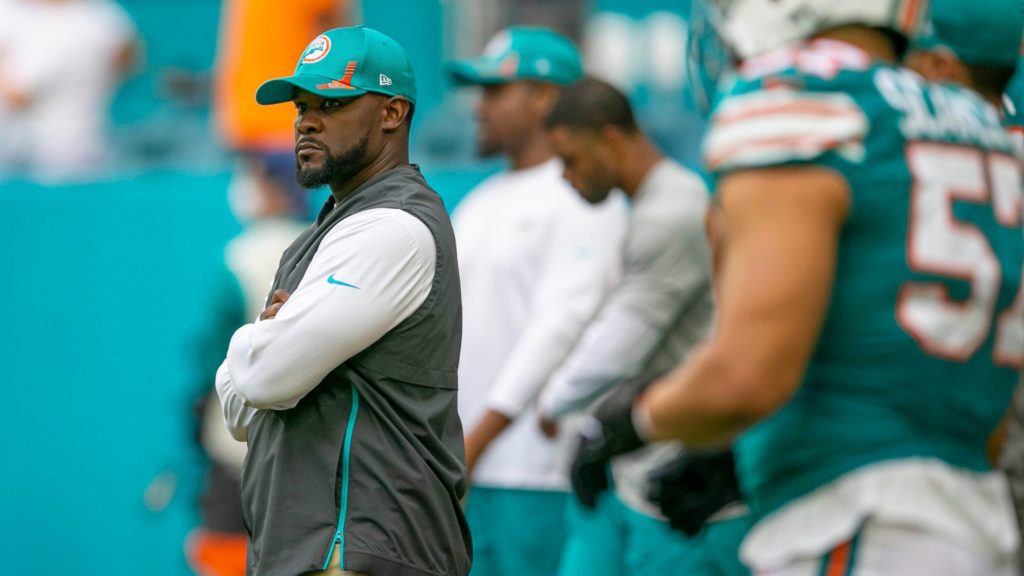
Troy Vincent was a five-time Pro Bowl cornerback who played in the NFL for 16 years. He finished with 47 career interceptions, including a league-high seven in 2002 with the Eagles.
Vincent has been the NFL’s executive vice president of football operations since 2014. Before that, he served as the league’s director of player engagement for four years.
The 33rd Team’s Paul Domowitch sat down with Vincent recently at the NFL’s Manhattan headquarters. This is Part 2 of a two-part Q&A:
>> Part 1: How NFL Is Working to Prevent Concussions
PD: You’re the league’s point man with respect to minority hiring. You’re starting to make strides in front offices, but it’s been an uphill battle with coaches. At one point this offseason after Brian Flores and David Culley were inexplicably fired, the league was down to just one Black head coach. Now you’re back to three, not including Carolina’s interim coach Steve Wilks. You’ve said that you hope the day will come when the Rooney Rule will be unnecessary. That we should be creating a workplace culture that doesn’t require mandates to interview people of color and minorities. Is it safe to say that day still is a long way off?
TV: Yes. Absolutely. But that’s the hope, and I live in a world of hope. Until we see organizations doing the right thing for the right reasons in hiring individuals, the Rooney Rule and other policy adjustments are necessary.
It’s disappointing because we’re going into the year 2023 and we’re still in a place where we still have to have these requirements and mandates just to interview women and people of color. You would think that as an institution at this juncture based off of the evolution of the sport and those who play it – almost 80 percent of our workforce are people of color at the collegiate level and this level -- that we would be the last institution that would be faced with this challenge.
We’re still talking about women in the front office. Are you kidding me? Denying women an opportunity when our children don’t know anything outside of women’s leadership. If you look at the elementary and high school and even collegiate level, women are playing key roles.
PD: The firings in January of Flores and Culley, was that as low as you’ve felt?
TV: It was just so unsettling. When I think about this journey, which has been going on for decades and all of the people past and present besides myself that have worked so hard to try and change things. Then, to find ourselves in a moment where there was one black coach in the National Football League, it’s unthinkable in this day and age. Literally unthinkable.
We finally have normalized the black quarterback situation. We had a record number of Blacks at the position. It wasn’t that long ago that people thought Blacks couldn’t play the position and produce at a high level. But to see ourselves with one Black coach? Man. It really caused me to pause and ask what else can we do here to change this? What other stones need to be turned over? What are we not doing?
And let me say this right now. The commissioner has given us complete latitude and support and literally all resources to address this. In many companies, the challenge is at the top where leadership is limiting you or not allowing you to do something. That’s not the case here. The commissioner, we can’t ask for more resources. Programs, initiatives. [He’s said] do whatever it takes to get results.
PD: And yet, just three black coaches, because the people doing the hiring – the league’s 32 owners – can’t be forced to hire a Black head coach if they don’t want to.
How do you deal with that? How do you change that dynamic?
TV: With love and empathy. You can’t point fingers if you want better results. You have to continue to work together and continue to educate and continue to bring people together who may not be spending much time together or are maybe from different worlds.
The truth is, the vast majority of our membership is in the same camp as the commissioner. They recognize that this is a problem for us. People say why does inclusion matter? Well, because it’s good for the game, and it’s good for the sport, and it’s good business.
I think [the owners] recognize that. So many of the clubs are completely aligned with what we are doing and the challenges that we have. We’re just not seeing the results that we would like.
PD: The Texans firing of Culley after just one season was a disgrace. So was the Dolphins’ firing of Flores. The Dolphins had back-to-back winning seasons under him. They won eight of their last nine last season. Is it any consolation that the Texans promoted another Black coach to replace him, and that the Dolphins replaced Flores with a bi-racial coach, Mike McDaniel?
TV: I’ll just speak to Lovie because what people are up in arms about, and rightfully so, is the lack of Black coaches. Those that identify themselves as Blacks or African Americans. We celebrate all coaches. But the challenge, the deficit, some would say the bias, it is about Black coaches.
With Lovie, look at what it took for him to get another [NFL head-coaching] chance. His boss, Culley, getting removed after just one year. We’ve seen that before. That’s just history repeating itself. That’s the (black-white) double standard that exists in this league. We still have to remember that both Jim Caldwell and Tony Dungy were fired after winning seasons. Brian Flores had two straight winning seasons and was fired. Steve Wilks was let go after one year in Arizona (2018). That’s why I have to wonder, is there one set of standards for one (skin color) that doesn’t exist for the other?
PD: Last December, how much time did you and (the league’s Chief Diversity and Inclusion Officer) Jonathan Beane spend on the phone talking to owners and executives, trying to make them aware of all of the qualified Black coaches and executives out there?
TV: Countless hours. But that was my responsibility. There were others doing the same thing I was doing. Fighting just for someone to be considered. I’ve been on the phone 1-2 in the morning with people like Doug Williams, Jimmy Raye and coach Dungy, and they’d be asking, have you thought about mentioning this individual or that individual.
What’s disheartening is when you’ve got to go back to these people and say this man hasn’t even received an (interview) request. That’s when the nights are long.
PD: So, how do you define success with respect to minority hiring? Is there a number that when you reach it, you’ll say we’re there? Or is it when the attitude of all of the owners becomes we’re going to consider all coaches, not just the white ones?
TV: You hope that. That’s what we aim to eliminate. Bias. Promote trust. Develop skills. Provide opportunities. That’s the hope. That we get to a day where you’re being measured off of team success, individual position-group success. How you manage players. How you communicate with people. What your strategic plan is. You hope those are the things that are present on the table when a team is looking for somebody in that coach/CEO role. But in many cases, those factors don’t seem to come into the equation.
PD: You’ve been an outspoken critic of nepotism and cronyism in the league. Talk to me about that and the negative impact it has on minority hiring.
TV: There’s both. Things like that are mobility blockers. Career-advancement blockers that we can’t ignore. We have just two clubs that currently actually have a nepotism rule. It’s something that’s been discussed as far as looking at some type of universal clause. But that’s as far as it’s gone. You have both at play. Nepotism and cronyism. It makes it difficult. It makes it very, very difficult for people to advance.
PD: Let’s talk about potential solutions to the minority hiring problem. In May, the league launched an accelerator program where it brought 60 minority assistant coaches and front-office executives to Atlanta for sort of a version of speed-dating with the league’s owners. The coaches and executives had short, impromptu sessions with the owners where they got a chance to know one another and ask each other questions. How helpful was that?
TV: One of the things we learn each year when we talk with coaches and clubs at the scouting combine, one of the things that was evident, and this was year after year, was the (lack of) familiarity. Meeting someone for the first time on Zoom isn’t ideal. Being judged and measured on Zoom. Oftentimes, there may not even be football people on the Zoom call.
This was an opportunity for interaction and engagement with membership prior to the hiring cycle being fully underway. This was birthed out of Jonathan and Dasha’s (Smith, NFL chief administrative officer) vision of can we get around the tampering policy and create a way for people to meet each other in a casual situation before we get to the actual hiring process.
I thought the informal setting in Atlanta over those two days was beneficial for all parties. Why? Because when we sit down, we realize we actually have more in common with people than we have differences. Sometimes many people are judging folks by their personal appearance or what they may assume about them rather than by who they really are or what they’re capable of. I thought it was a phenomenal two days. There was true organic conversation and discussion and networking.
We also had a peer-to-peer part. I thought that was just as impactful as a membership meeting with the potential prospects. Most of the participants didn’t know each other. When you think about hiring and how you’re going to set your staff up, whether it’s a personnel department or a coaching staff, you’re typically just one or two deep. But this gave the participants an opportunity to meet some other people. Now, if one of them becomes a head coach or personnel director or GM, and they’re thinking about who they should hire or who might be available, they’ll have a bigger pool of people to consider.
PD: In March, you expanded the Rooney Rule to include the mandatory hiring of a minority offensive assistant. Why is that important?
TV: If you look at just the last 10-12 years and where many of the head coaches have come from, the vast majority have been on the offensive side of the ball. Offensive coordinator. Quarterbacks coach. The purpose of this is to build depth in the pipeline. There was this false narrative a few years back that there was no pipeline (of minority candidates). That wasn’t true. There was indeed a pipeline of people ready to be either GMs or head coaches.
But, we have to look at this problem from both a short-term and long-term perspective. How do we get these individuals in the offensive room? Facts are facts. The first Black offensive coordinator in the NFL was in 1981. Today, in 2022, there are only four. Four! We have to put that in context. When you look at the structure of the clubs, that’s where nepotism and cronyism come in. When you look at who’s in that room, it often is friends, buddies, extended family members, cousins.
I’m so happy that membership adopted this. It’s critical to the long-term success of where we want to be. Everybody is enamored with the quarterback. If you’re not touching the quarterback, if you don’t have a plan how to manage or coach that individual, chances of you becoming a head coach are greatly diminished, because today, as we are seeing, teams are putting a half-billion dollars into that player. But again, that’s the long play.
PD: At the league meetings last March, several white coaches, including the Chiefs’ Andy Reid, the Seahawks’ Pete Carroll, the Ravens’ John Harbaugh and the Colts’ Frank Reich addressed the owners and advocated for Black coaches on their staffs. Do you think that helped?
TV: It was necessary. These men, their successes as players and coaches, the black athlete was intricate to their success. Many of them talked of learning the game through either a Black athlete or a Black coach teaching them.
There also were owners who stood up in that meeting and shared their experiences as well. Identifying Black men as leaders. It was surreal. Identifying someone, identifying leaders of men, who were going to galvanize a locker room and help move an organization in one direction. Many owners shared that same sentiment.
You had nine new head coaches sitting in that room at the time. I thought it was just good as a collective body to hear people like (49ers general manager) John Lynch and coach Reich and coach McDermott and coach Harbaugh, they were standing on the table for the game.
PD: We’ve spent a lot of time focusing on the bad news regarding minority hiring. The low number of Black head coaches. But things actually have gone much better the last two years with respect to Black GM hires.
TV: Tremendous. We have eight today. About three years ago, we saw the depth. When we started talking about the pool of young talent coming up, we knew that bench was really, really deep. It was just a matter of timing and the cycle. And it occurred, boom, all at one time.
What was significant was Washington’s hiring of Martin Mayhew. The reason it was significant was it was the first time a Black GM received a second opportunity to lead a club (he was the Lions’ general manager from 2008-15). It was significant.
We feel the same way about the coaches today. It’s just a matter of when is that time going to occur. Because that bench is deep. When you look at the collegiate landscape and the professional landscape, it’s a deep bench.

